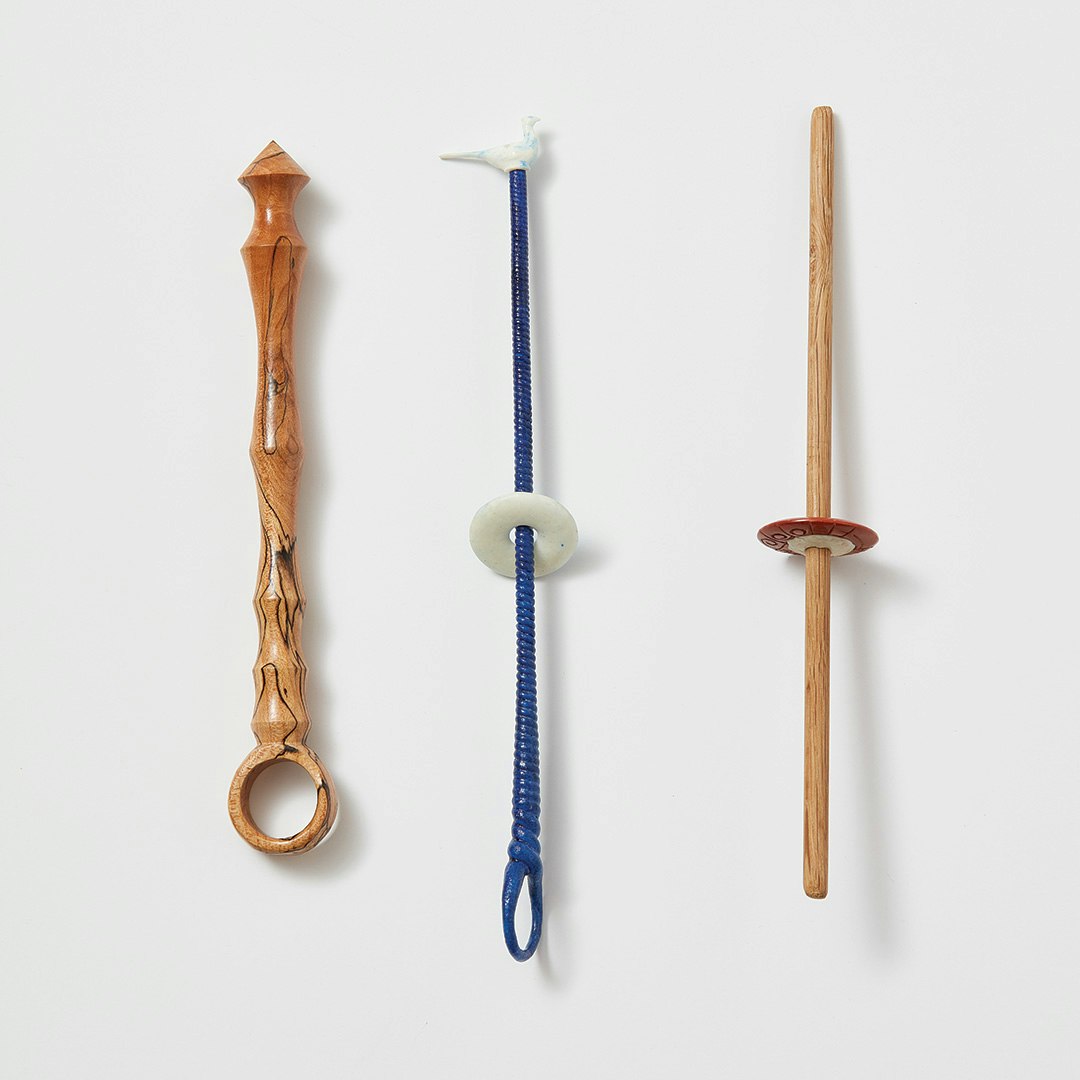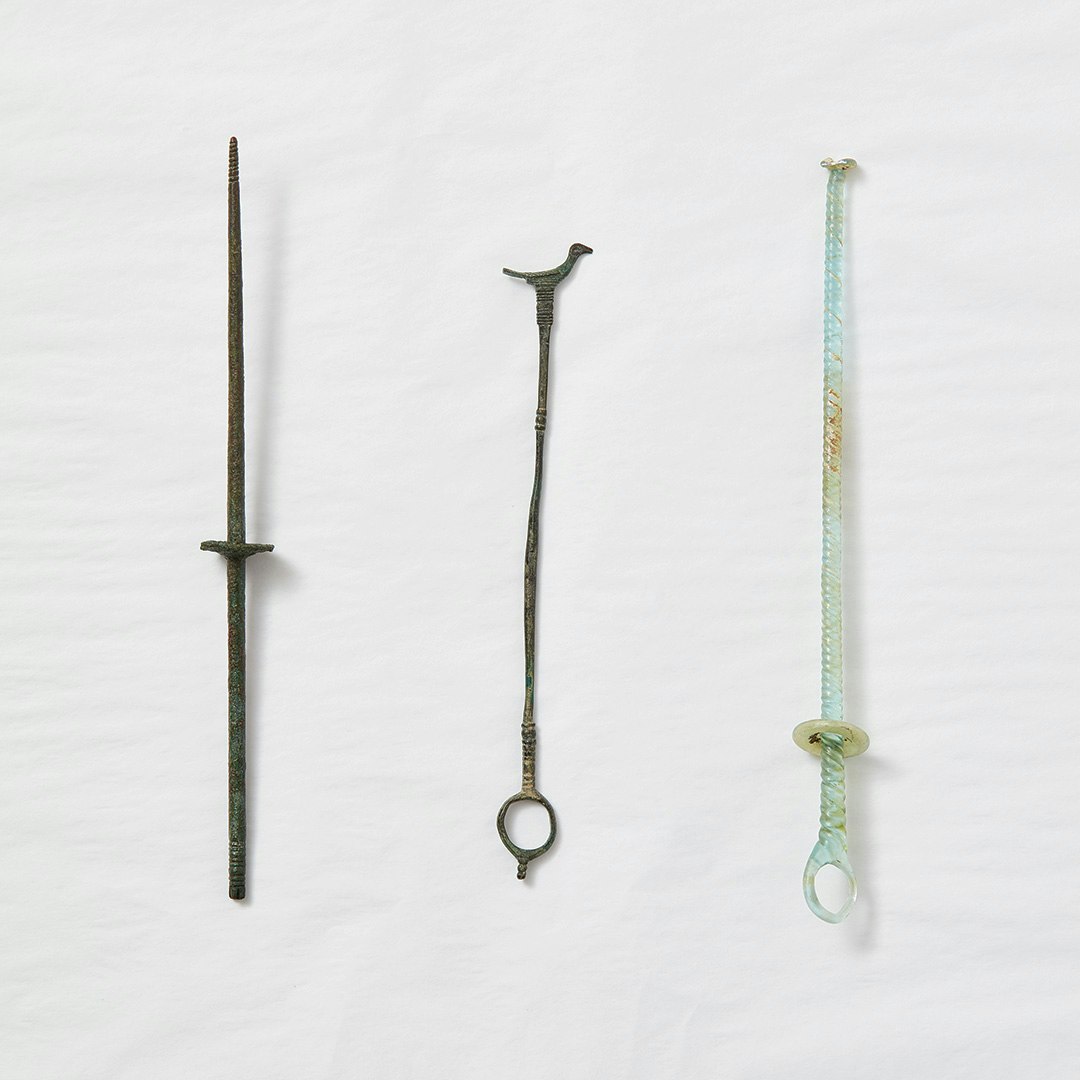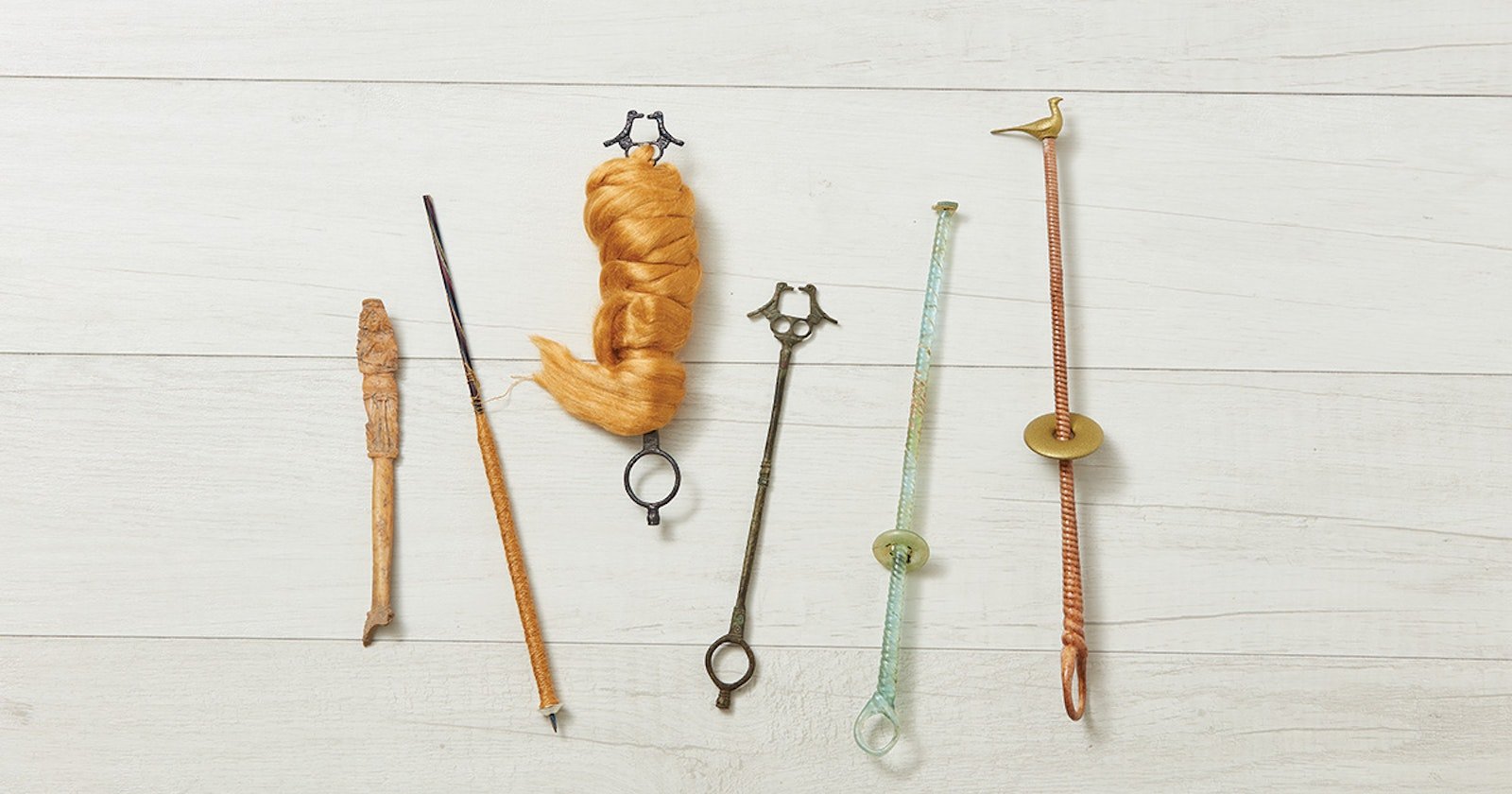Imagine a tool that allows a drop spindle spinner to keep her arm in a comfortable, vertical position, with her hand mostly relaxed. Imagine that this tool allows easy and controlled drafting while keeping her fingers mostly relaxed and loosely curved. This tool is, at its simplest, a stick—a handheld distaff.

Three contemporary distaffs. From left to right: wooden ring distaff from TheDancingGoats; 3-D-printed sliding-whorl distaff from Far Out Farm; simple midwhorl distaff made with a dowel rod, a stone donut, and a little putty.
Distaff Specifications
In general, handheld distaffs should be between 7 and 10 inches (17.5–25 cm) long. A longer distaff can be awkward or uncomfortable, and a shorter one is usually impractical for a modern spinner. Anything you plan to hold in front of you should not be excessively heavy, but a balanced distaff, or one with a support ring, can be surprisingly comfortable. Try for a distaff weighing not much more than an ounce.
The Stick Distaff
To begin, find a stick 6 to 8 inches (15–20 cm) long and ½–¾ inch (1.3–2 cm) in diameter. It doesn’t have to be fancy—even a dowel will do. Experiment to see what feels most comfortable. Sand and finish your stick so that it is entirely smooth. Congratulations—you’ve made a distaff.
The Fixed-Whorl Distaff
Whorls can be made of any smooth material. Stone donuts and bone beads are great, if you can find them in the sizes you want (1 to 1¼ inch [2.5–3 cm] in diameter). The whorls should be fairly flat so that they will fit comfortably between your fingers. You do not need as thick a shaft as for the stick distaff. Wood is still the easiest material to find and work with.

These ancient distaffs from Kim Caulfield’s collection don’t look so different than the modern ones above. From left to right: a midwhorl distaff, a ring distaff, and a hybrid distaff with a support ring and a sliding whorl.
The Ring Distaff
Ring distaffs were traditionally made all in one piece. If you are comfortable carving in wood or bone or working with glass or metal, this is probably still the easiest way to go. Begin with a shaft of 7 to 10 inches (17.5–25 cm). The rings should fit loosely enough to be easily slipped on and off. Try to keep the ring bands fairly thin and smooth so they will be comfortable. It is possible to cobble together a distaff from many materials. Carved rings or commercial ring blanks can be glued to wooden or glass rods. You may even be able to find a close-fitting whorl to create your own version of a sliding-whorl distaff.
About 3-D Printing
It is possible to use computers to reproduce ancient artifacts—in fact, it can work well. There are a wide variety of printing materials available, and home 3-D printers can use several types of plastic. Commercial printing companies can custom print in plastics with a wide range of dimensions, and some can make excellent distaffs, although they may require hand-finishing.
— Kim Caulfield
Kim Caulfield has been spinning and collecting odd spinning wheels and spindles for decades. She raises sheep in Tennessee, and she is passionate about sharing her love of natural fibers and spinning.
Download the Fall 2018 issue of Spin Off to read more about distaffs old and new, plus learn how a distaff is used.
Featured Image: Left to right: Roman bone distaff with carved female figure, spindle and reproduction ring distaff with red eri silk, Roman bronze distaff, Roman glass distaff, 3-D-printed replica distaff. Photos by George Boe.

